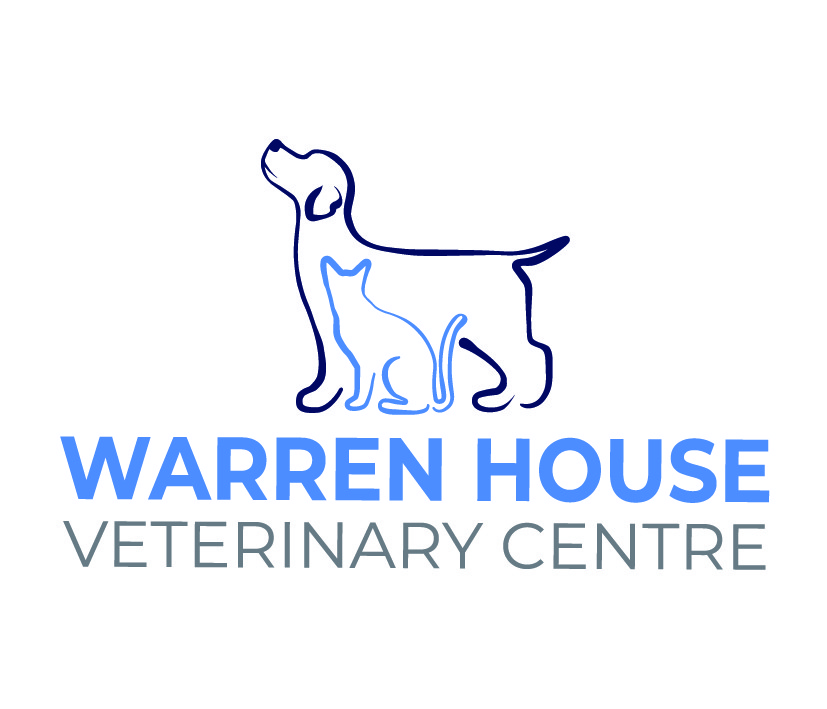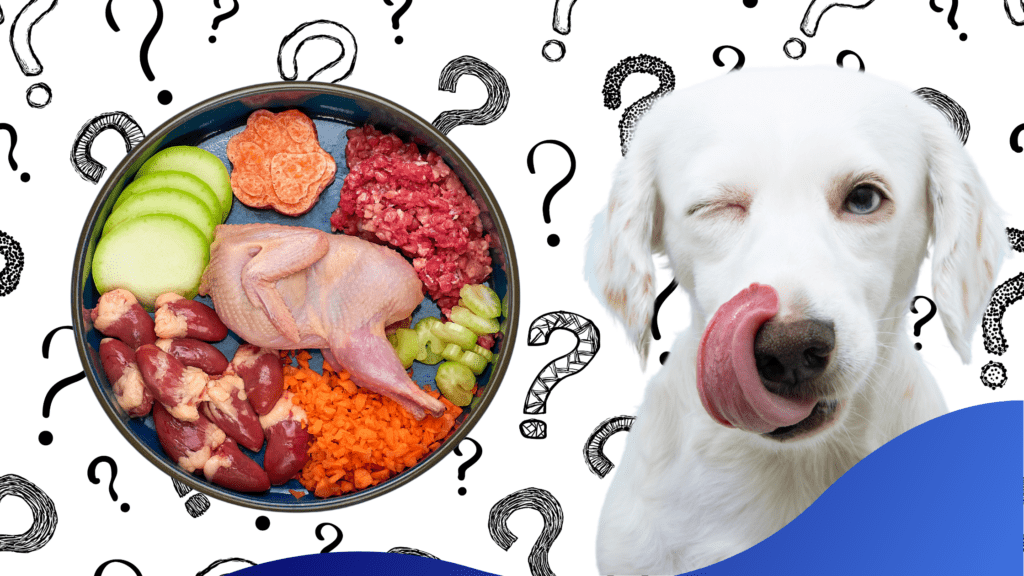
Recent research carried out by the Department of Small Animal Clinical Science, Institute of Infection Veterinary and Ecological Sciences, University of Liverpool, has discovered that UK dogs eating raw meat diets have a higher risk of Salmonella and antimicrobial-resistant Escherichia coli (E.Coli) faecal carriage.
The data shows that feeding raw dog food to dogs is potentially dangerous to both the dog and to you. Nearly 25% of the raw food samples tested positive for harmful bacteria including salmonella. On average 10,000 people in the UK are infected with Salmonella, the infection can be acquired from household pets if the pet is infected with Salmonella.
Why do owners choose the raw diet for their pets?
In total, 190 faecal samples were collected from 140 dogs in the UK, 114 were raw-fed and 76 were non-raw-fed. The most common reasons for choosing a raw diet was:
- Adverts (28%)
- Friends (26%)
- Dermatitis (11%)
Reason for choosing a non-raw-diet:
- Friends (29%)
- Veterinary advice (24%)
- Breeder advice (22%)
This leads you to believe if Vets are recommending non-raw-fed diets, is raw really the best for our pets?
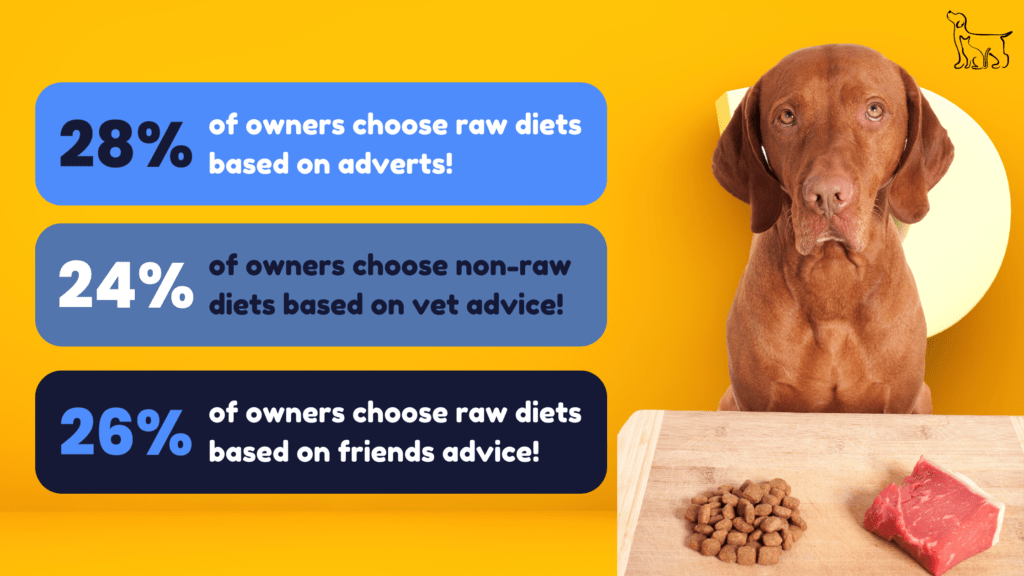
Raw meat diets are increasing in popularity, previous studies have shown that raw meat fed to dogs can be contaminated with E.Coli and salmonella species, and feeding raw meat has been shown to be a risk factor in the detection of canine poo salmonella and E.Coli.
The consumption of raw meat by domestic pets may introduce E.Coil and other pathogenic bacteria into households and spread through household members.
In conclusion to the study, salmonella and E.Coil were found in the poo of raw meat-fed dogs than in non-raw meat-fed dogs. This should be considered by all owners deciding on the right diet for their pets, to reduce any potential risk to themselves, their family, and their pets.
How to reduce the risk of salmonella?
The best protection against salmonellosis is to avoid the bugs altogether by not feeding raw food to your dog. Be aware that by feeding raw dog food you can infect yourself and the other people in the household. That said, here are some ways in which you can protect yourself if you handle raw dog food:
Symptoms of Salmonella in humans
Symptoms of salmonellosis in humans generally start 12 to 72 hours after exposure, children, the elderly, pregnant women and immunocompromised individuals (patients on Chemotherapy, with HIV, etc) are at a greater risk of more severe symptoms.
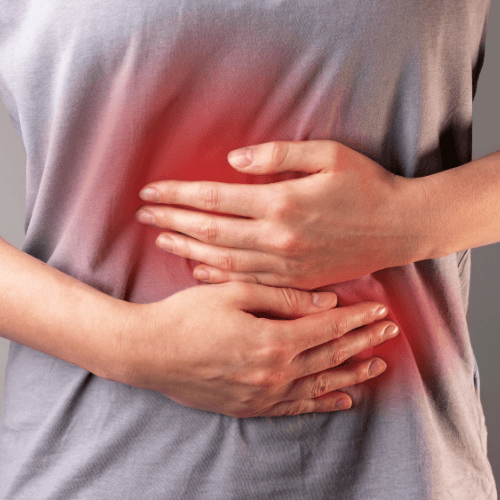
Symptoms of Salmonella in Dogs
Dogs can actually carry Salmonella in their intestines without showing signs of illness. This makes them a potential reservoir for ongoing exposure to the humans in the household. In dogs, the symptoms of salmonellosis include:
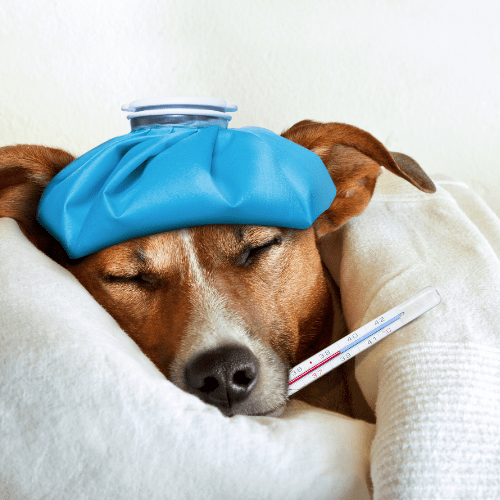
If you suspect you or a member of your household has salmonella please go straight to your local hospital. If you suspect your pet has salmonella:
If you need nutrient and diet advice, we offer free nurse clinics to advise you on the health and well-being of your pet.
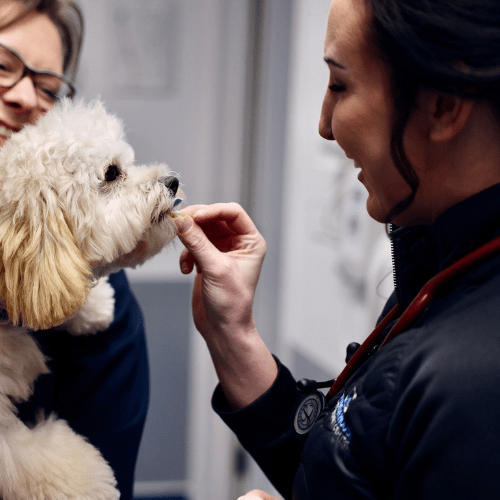
Thanks for reading, until next time…
